Search
Remove Ads
Advertisement
Summary 
Loading AI-generated summary based on World History Encyclopedia articles ...
Search Results
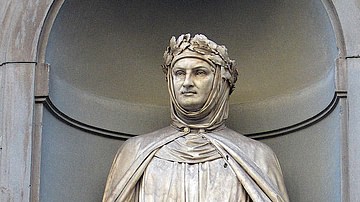
Definition
Giovanni Boccaccio
Giovanni Boccaccio (1313-1375) was an Italian poet, writer, and scholar. His most famous and influential work is the Decameron, completed by 1353, in which his ten characters present 100 tales of everyday life. The book covers all manner...
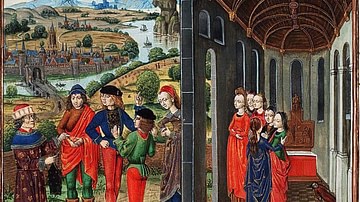
Image
Giovanni Boccaccio & Florentines Who Have Fled from the Plague
Illustration from a medieval manuscript Giovanni Boccaccio, Le Decameron. Translated from the Italian by Laurent de Premierfait Bruges, Master of 1482 and follower (illuminators); c. 1485 CE Manuscript reference: The Hague, KB, 133 A 5...

Image
Giovanni Boccaccio, Uffizi
A statue of the Italian poet and scholar Giovanni Boccaccio (1313-1375 CE). Created in the 19th century CE by Odoardo Fantacchiotti. (Uffizi Gallery, Florence).

Article
Boccaccio on the Black Death: Text & Commentary
The Black Death is the name given to the plague outbreak in Europe between 1347-1352 CE. The term was only coined after 1800 CE in reference to the black buboes (growths) which erupted in the groin, armpit, and around the ears of those infected...
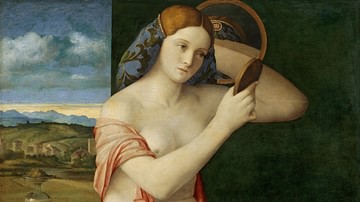
Definition
Giovanni Bellini
Giovanni Bellini (c. 1430-1516 CE) was an Italian Renaissance artist best known for his innovative use of colour, interest in light, and emphasis on brushwork. Today, Giovanni is recognised as the most innovative and influential of the Bellini...
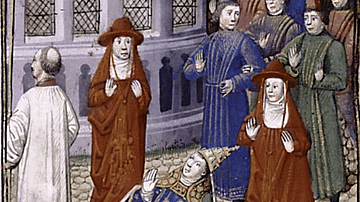
Definition
Pope Joan
Pope Joan was a legendary female pope of the Middle Ages said to have reigned from 855 to 858. After her story was popularized by Italian writer Giovanni Boccaccio (1313-1375), a statue of her was placed alongside those of other popes at...
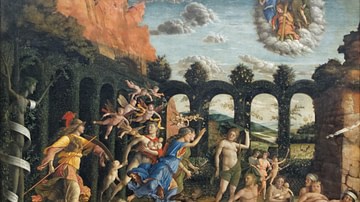
Definition
Renaissance Humanism
Renaissance Humanism was an intellectual movement typified by a revived interest in the classical world and studies which focussed not on religion but on what it is to be human. Its origins went back to 14th-century Italy and such authors...

Definition
Petrarch
Petrarch (1304-1374 CE), full name Francesco Petrarca, was an Italian scholar and poet who is credited as one of the founders of the Renaissance movement in art, thought, and literature. Petrarch actively searched for 'lost' ancient manuscripts...
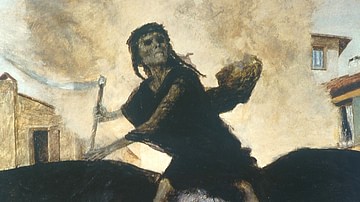
Definition
Black Death
The Black Death was a plague pandemic that devastated medieval Europe from 1347 to 1352. The Black Death killed an estimated 25-30 million people. The disease originated in central Asia and was taken to the Crimea by Mongol warriors and traders...
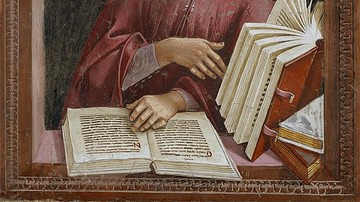
Definition
Medieval Literature
Medieval literature is defined broadly as any work written in Latin or the vernacular between c. 476-1500, including philosophy, religious treatises, legal texts, as well as works of the imagination. More narrowly, however, the term applies...